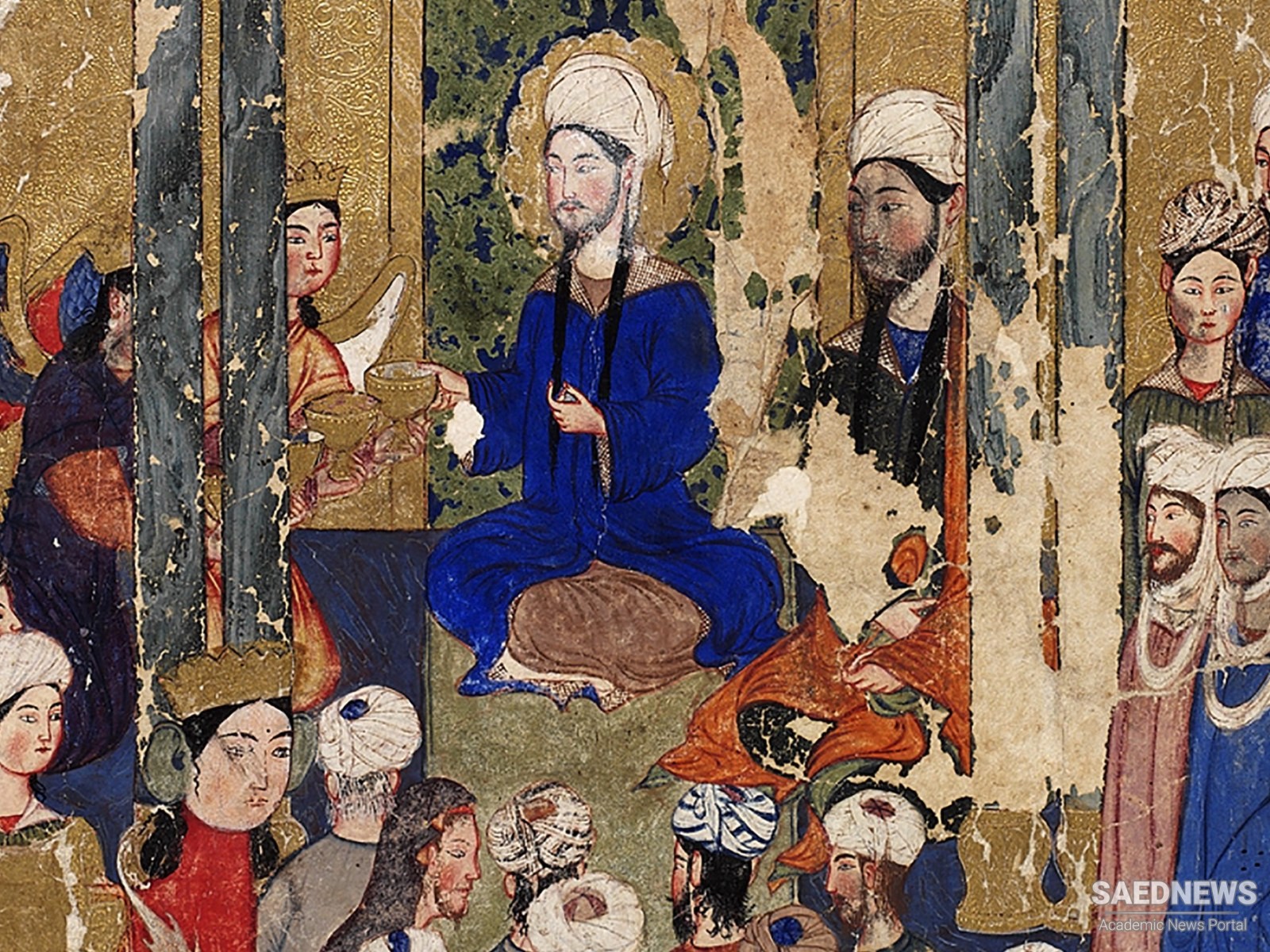“His military triumphs awakened no pride nor vain glory, as they would have done had they been effected for selfish purposes,” American intellectual and author Washington Irving (creator of Rip Van Winkle) said. “In the time of his greatest power, he maintained the same simplicity of manners and appearance as in the days of his adversity.” 106 Scholar Muhammad Ali asserts that Muhammad had “no inclination for war” and “was peace-loving by nature,” while biographer Martin Forward states that “the prophet was a reluctant warrior.”
In one instance, a companion, Abu Dharr al-Ghifari, asked him what to do if someone entered into his house to kill him. He replied, “If you fear to look upon the gleam of the sword raised to strike you, then cover your face with your robe. Thus will he bear the sin of killing you as well as his own sin.” Muhammad also famously said that the battle (jihad) against one’s enemies within oneself were much more difficult than the physical battle against external enemies.
The image of Muhammad as a ruthless warrior is contradicted by the record. During his decade-plus stay at Mecca, Muhammad and his followers endured torture, trash, stones, and a murder plot, but instead of retaliating, Muhammad first asked his followers to emigrate and then famously did so himself, an act of migration (called hejira ) that is a defining moment in Islam. In Medina, he arrived at agreements between the various tribes to run the affairs of the city. And he crafted the constitution of Medina, which allowed the religious minorities of the area to practice their religion as long as they pledged to support the Muslims in any conflict situation.
Scholars point out the completely nonviolent conduct of the prophet during his more than a decade in Mecca, a period of several years when he didn’t use violence even in self-defense. Instead, he preached the value of patience and steadfastness in resisting oppression.
Muhammad’s response to all the taunting and criticism he received during his days in Mecca was quite benign. “Although [Muhammad] is harshly criticized by his Meccan opponents for insulting their idolatrous way of life, he is described even during the most heated argument as refraining from any kind of physical violence,” writes Professor Firestone. “This description is significant, given the fact that all the available accounts of Muhammad’s career were written and redacted by the winning Muslims, whose very success was predicated by their willingness (or desire) to engage actively in war. Muhammad is invariably portrayed as steadfast in his refusal to respond to insult with violence.”
The early Muslims were beaten and even tortured in Mecca by their opponents (with at least one death) but even then refrained from retaliation. For instance, Abdallah ibn Masud, a companion of Muhammad and a famed early Qur’an reciter, narrated some of Muhammad’s revelations to the Quraysh tribe and, in spite of being badly beaten, refused to retaliate.
The harassment and bullying was ceaseless until the first emigration in Muslim history, that of a large number of followers to current-day Ethiopia. A poem that Professor Firestone reproduces by one of the early Muslims, Ibn Ishaq, provides a lot of insight into the mentality of early Muslims: My heart refuses, I will not lie, to fight them. So too, refuse my fingertips [to fight]. How can I fight a group of people who educated you About truth, that you not mix it with falsehood.
And when they were brought before the ruler of Ethiopia, their representative said, “God commanded us to be truthful in speech, trustworthy, to honor ties of kinship, be hospitable, and refrain from forbidden things and bloodshed.” “The distinctions made in this monologue between the ways of Islam and those of the jahiliyya are revealing, for it considers the early ways to be full of lies and violent behavior in association with idolatry,” writes Firestone. “Muslims, as opposed to Meccans of jahiliyya, honored kinship ties but refrained from violence.”
Other scholars also emphasize the peacefulness and patience of Muhammad during his long years in Mecca. Even when faced with oppression in various forms, he never engaged in physical or even verbal retaliatory violence. Instead, the prophet preached steadfastness ( sabr ) and patience, values that were taken to heart by Muslim proponents of nonviolence in modern times, such as Abdul Ghaffar Khan (as we shall see later in this book). Here he relied on his spiritual inspiration in the Qur’an to deal with the aggression and confrontation. And when Muhammad finally did take action in response to the oppression, it was with the nonviolent act of emigration ( hijrah ), an act held in reverence by Muslims.
Although there was a change in emphasis after the emigration to Medina because of the exigencies of circumstances, it can still be said that Muhammad was an essentially nonviolent person who most often applied skillful diplomacy rather than force to win over enemies. “Despite all the battles Muhammad had to fight, he remained inherently a nonviolent leader, even in difficult circumstances,” Kishtainy writes. “He often had to restrain his followers from violence.”
A number of times, Muhammad forswore the use of force. When three months before the Battle of Badr, a follower, Abbas ibn Ubada, told Muhammad, “If you should ask me, we shall put all the people in Mina to the sword,” for continually harassing Muhammad, he replied, “This is not what we have been ordered to do; now return to your goods.” Similarly, Muhammad abandoned the siege of Taif because of the fear that women and children would be at the receiving end of the catapults used as weapons. His tactics paid off when the people of Taif voluntarily converted to Islam.


 Violence Has Nothing to Do with Islam
Violence Has Nothing to Do with Islam














































